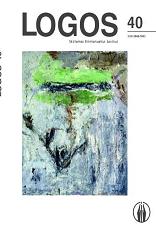ESATIS KAIP BLOGIO ŠALTINIS PAGAL EMMANUELĮ LEVINĄ IR TOMĄ AKVINIETĮ
Being as the Source of Evil According to Emmanuel Levinas and Thomas Aquinas
Author(s): Gintautas VyšniauskasSubject(s): Philosophy
Published by: Visuomeninė organizacija »LOGOS«
Keywords: Being; evil; privation; excess; form; potency; act
Summary/Abstract: In the article, the concepts of being and evil, as they are presented in the writings of T. Aquinas and E. Levinas, are considered and compared. At the beginning, it seems that the concepts of these authors are as contrary to each other as privation is contrary to excess. But an explication of the concepts and their comparison leads to the conclusion that they are more supplementary to each other than contrary. Aquinas examines evil as a scientist, who does not permit himself to be emotionally moved by the object of his inquiry, and sees it as a privation of proper form or act. Therefore, when he comments on particular examples of evil, eg the suffering of the just etc, his statements seem close to cynicism. Levinas, on the contrary, does not abstract his considerations from those who experience evil. It seems that he accepts the position of sufferer, and therefore, as a rule, treats evil as an excess of being. Nevertheless, defining excess of being as the privation of form, Levinas leaves open a passage from the understanding of evil as excess to its understanding as privation. The article concludes that the usage of contrary terms for the signification of evil by Aquinas and Levinas is determined by the different approaches of these thinkers to the object of inquiry. Both terms and approaches have their own rationale within the limits of their own fields and must not be confused. Nevertheless, they are not incompatible.
Journal: LOGOS - A Journal of Religion, Philosophy, Comparative Cultural Studies and Art
- Issue Year: 2005
- Issue No: 40
- Page Range: 181-195
- Page Count: 15
- Language: Lithuanian

